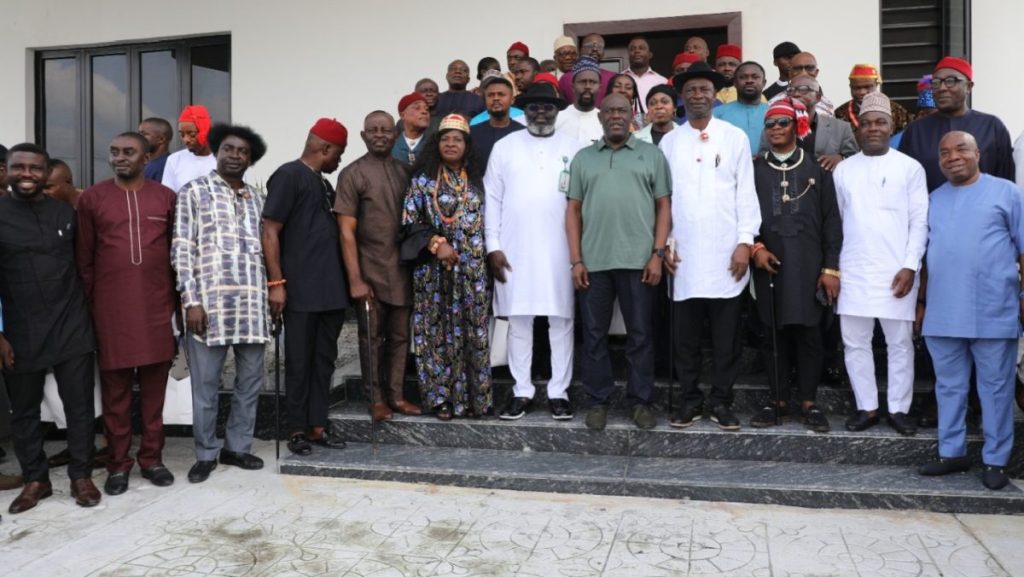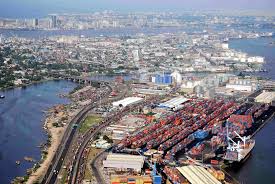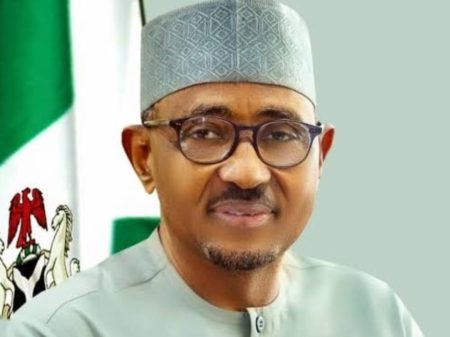
Mkpoikana Udoma
Port Harcourt — The Senate Committee on Host Communities has called on the Nigerian Upstream Petroleum Regulatory Commission, NUPRC, to release fines collected from oil companies for gas flaring to host communities in the Niger Delta.
Chairman of the Senate Committee, Senator Sunday Benson Agadaga, speaking at a townhall meeting with Ogoni Stakeholders in Nonwa, Tai Local Government Area of Rivers State, said the move aims to support host communities, which have been severely impacted by environmental degradation and pollution.
Agadaga noted that the funds retained as penalties for oil spills and gas flaring have grown to hundreds of billions of Naira, yet the communities continue to suffer from the devastating effects of oil and gas exploitation, and emphasized the need for the NUPRC to prioritize the welfare of host communities.
The Senate Committee who had earlier visited the shoreline remediation sites and mangrove restoration project undertaken by the Hydrocarbon Pollution Remediation Project, HYPREP, commended the Project Coordinator Prof Nenibarini Zabbey, for his efforts in restoring the environment and livelihoods of communities affected by oil pollution in Ogoniland.
Agadaga also appealed to the youths and people of Ogoni to protect HYPREP facilities and project sites in Ogoniland.
“I want to take this opportunity to call on NUPRC, the money that has been retained as the penalty for oil spills and gas flaring should be released to host communities. The money has grown to hundreds of billions of Naira, and they (NUPRC) are always putting up all kinds of excuses and bottlenecks not to bring out that money.
“Because the communities are the ones suffering from pollution. HYPREP is working on water and the soil, what of the air? So they (NUPRC) should release that money to host communities.
“Because of gas flaring, our roofs don’t last again, like what I am experiencing in my area in Bayelsa State. If you use ordinary zinc to roof your house, it doesn’t last; it easily gets corroded and starts leaking; some crops don’t grow well again. So that money should be released, to the people who are suffering from the devastating effects of oil and gas exploitation in the Niger Delta.
“I am happy that Iife is returning to Ogoniland, and that the flora and fauna are gradually being restored. I saw women in the creek harvesting periwinkles, unlike before where you can’t find any periwinkles here which shows you the level of devastation from oil pollution in the Niger Delta.”
Also speaking, HYPREP Coordinator, Prof Nenibarini Zabbey, announced that 3,000 hectares of the Ogoni shoreline would be restored through the planting of multi-species of mangroves, including the red, black, and white mangroves to restore the biodiversity in the area.
He said, “We are not re-vegetating the creek by planting mangroves to provide canopy in the area, but we are restoring the ecosystem. So we are planting multiple species that are common in the region.
“Because it’s in the mangrove ecosystem that commercial fish species come to breed and the juvenile spends considerable duration in the mangrove before returning to the deeper waters.
“What we are doing is restoring the ecosystem and in so doing, both plants and animals that dwell in that habitat will be restored.”
Meanwhile, a member of HYPREP Governing Council, Mr Celestine Akpobari, told the State Committee that funding for Ogoni cleanup remains a significant concern, with the initial $1 billion take-off grant expected to be exhausted after five years.
“The Nigerian government is yet to provide its counterpart funding, leaving the project’s long-term sustainability uncertain. One Kobo from the government has not entered this project. The $1 billion that people talk about was a take-off grant for the first five years. Nobody is talking about what will happen to the project after the first five years when the money must have been exhausted.
“We need you to use your office to look for money to conduct an environmental assessment of the entire Niger Delta region,” Akpobari urged the Senate Committee on Host Communities.



